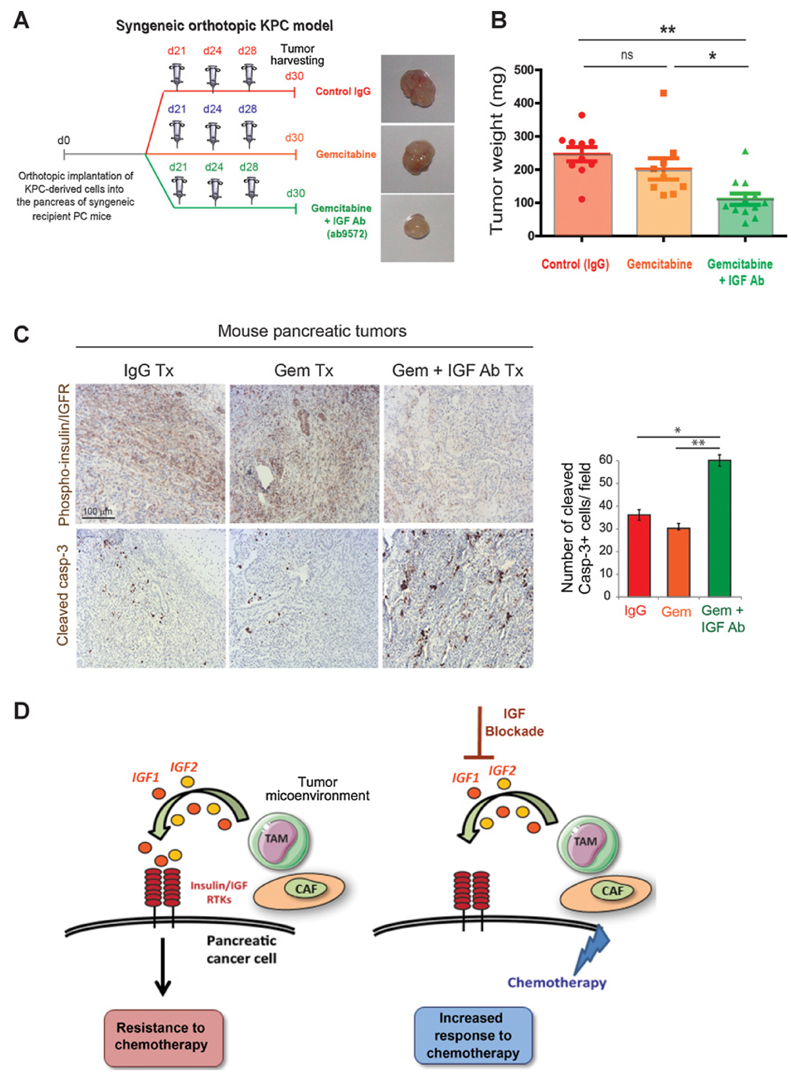Figure 6. Combination of gemcitabine with IGF-blocking antibody ab9572 decreases tumor growth in a syngeneic orthotopic pancreatic cancer model.
A, Primary mouse KPC-derived pancreatic cancer cells were implanted orthotopically in the pancreas of syngeneic recipient mice. Mice were administered intraperitoneally twice a week with IgG antibody, gemcitabine alone, or gemcitabine with an IGF-blocking antibody from Abcam (ab9572). Tumors were harvested at day 30 and representative images are shown. B, Tumor weights are shown (n = 9–12 mice per group). **, P ≤ 0.01; *, P ≤ 0.05 using one-way ANOVA and Tukey post hoc test. C, Left, immunohistochemical staining of phospho-insulin/IGF1R, and cleaved caspase-3 in pancreatic tumors treated with IgG, gemcitabine, or gemcitabine + IGF-blocking antibody ab9572. Right, Quantification of cleaved caspase-3–positive dead cells in pancreatic tumors from mice treated with IgG control antibody, gemcitabine, or gemcitabine + ab9572 IGF-blocking antibody (6–8 fields counted/mouse tumor), **, P ≤ 0.01 using one-way ANOVA and Tukey post hoc test. D, Schematics depicting the role of stroma-derived IGF in activation of the insulin/IGF1R signaling survival pathway and in mediating chemoresistance of pancreatic cancer cells.

